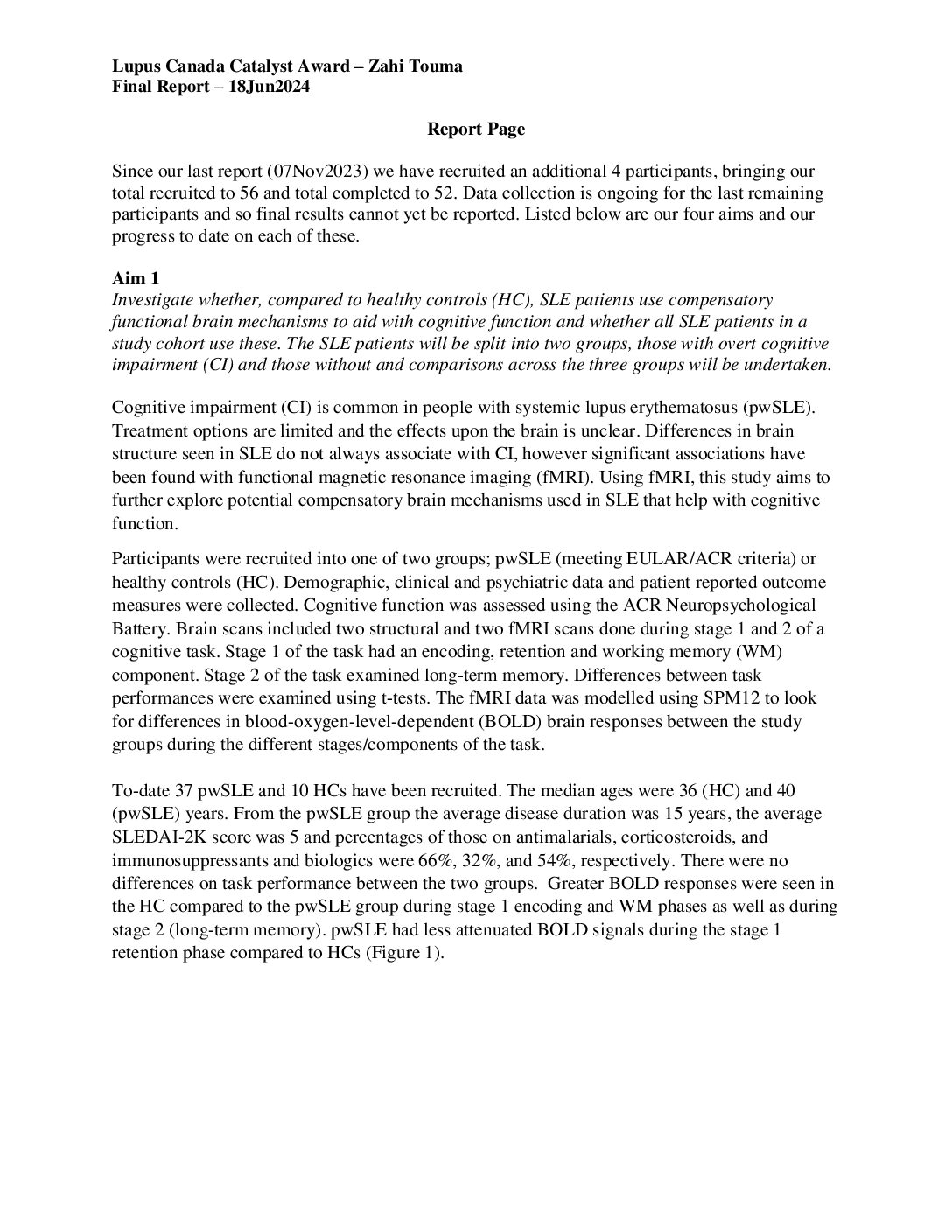Exploring Cognitive Fatigue and Brain Function in Lupus: New MRI Study Reveals Insights into Cognitive Impairment Mechanisms
A pilot study examining the relationship between cognitive dysfunction and cognitive fatigue in SLE using structural and functional MRIs of the brain and focusing on the underlying mechanisms

Cognitive impairment is commonly experienced by people with lupus. Treatment options are limited and the effects upon the brain is unclear. Dr. Touma’s research group used a brain imaging technique called functional magnetic resonance imaging – which looks at blood flow in the brain – to understand how the brain works when people with lupus perform cognitive tasks. These cognitive tasks can test attention, memory, concentration, planning and spatial processing. Using brain scans, Dr. Touma’s research group aimed to further explore potential compensatory brain mechanisms used by people with lupus that may help with cognitive function.
Brain scans of participants included scans done during 2 stages of a cognitive task. Stage 1 of the task had an encoding, retention and working memory component. Stage 2 of the task examined long-term memory. Although there were no differences in task performancecompared to healthy controls, Dr. Touma’s research group found altered brain responses to cognitive tasks in participants with lupus. Predominantly the control group had greater brain responses in cognitive regions during the task compared to the lupus group. This study is still ongoing and additional results are expected.
For more information on Dr. Zahi Touma’s Catalyst Grant please visit www.lupus.org/2021-recipients-of-the-lupus-canada-catalyst-award

